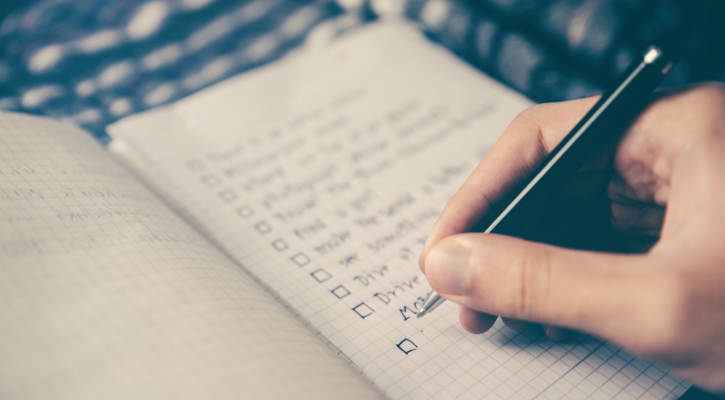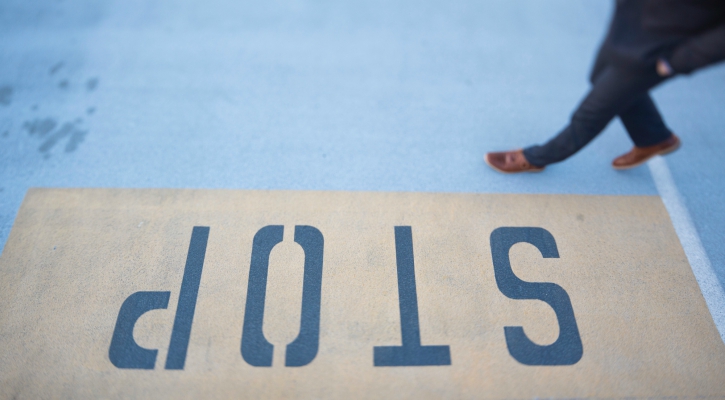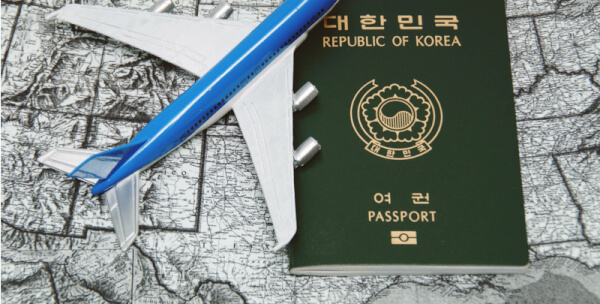A list of the top banks in South Korea
A list of the top banks in South Korea, including KB Kookmin Bank, Hana Bank, Shinhan Bank, Woori Bank and Industrial Bank of Korea.

South Korea is a popular destination for expats looking to relocate abroad. It's a major technology hub and has thriving cities like Seoul. There are many job opportunities in South Korea such as teaching English as a foreign language. This guide will help you navigate the interview process in South Korea so you can land that new job and move overseas.
You need to thoroughly prepare for a job interview in any country. This means learning about the company and the job responsibilities. Check the company’s website for more information on the company’s:
You’ll also want to create a Korean resume if you haven’t already. This is called an ee-ryuk-seuh. It’s similar to an Excel spreadsheet and you attach your photo to the top of it.
Additionally, arriving early to the interview is important, so you’ll want to map out the route to your interview ahead of time.
| Create your resume by choosing the best resume format from our free resume templates and customize it with your history. |
|---|

If you’re applying for a job in South Korea, you might be asked to conduct a Skype interview before interviewing in person. In a Skype interview, you won’t have to worry about the formal physical etiquette that goes along with in-person interviews in Korea. Still there are certain protocols you should follow, like:

Culture and tradition are important to South Koreans and you’ll likely get interview questions that will ask you to discuss your loyalty, humility and respect. These are important qualities that your interviewer will look for in the way that you answer questions and act during the interview. You should be prepared to answer common questions like:
You might also be asked personal questions about your friends, family, and marital life which you can answer to the level of your comfort.
If you’re interviewing for the English Program in Korea (EPIK), you may be asked questions about your educational background and your teaching experience such as your educational philosophy and how you manage your classroom. You could also be asked about how much you know about the country and its history.

It’s important to ask questions at the end of your interview. You can use this time to get to know anything about the job or company that hasn’t previously been discussed. Asking questions demonstrates your interest in the position, so make sure you have some good ones in the pipeline.
Most people ask questions that are related to the role and associated skill set. Avoid asking any questions specifically related to the salary of the job until you're offered the position. In a society like South Korea where hierarchies, politeness, and humility are important, asking about salary too early in the process is seen as rude.
If you’re interviewing for an English teaching position you might want to ask things like:

Looking your interviewer directly in the eyes is considered disrespectful in South Korea. The interview will be very formal, and you should show respect to your interviewer. Don’t interrupt your interviewer, and speak modestly, in a quiet tone of voice.

You should arrive at your interview at least 15 minutes ahead of time. When you first meet your interviewer, stand in front of them and bow your head and state:
Don’t reach out for a handshake unless they reach out their hand and initiate a handshake first.

You should look smart for your interview in South Korea. Most people wear suits, but the tie is usually optional. As with interviews in other countries, you should keep your accessories to a minimum and ensure that your hair and makeup look natural.

Salaries are discussed in South Korea after you're offered the job. Your new employer will offer you a salary but you're welcome to ask for something more if you want to. If you have experience in the position already this might put you in a better place to negotiate. For example, English teaching positions in Korea will likely offer a larger salary to people with teaching experience. Before negotiating the salary you should also consider the benefits that were offered with the position as well. For example, some teaching jobs may cover some housing costs and that might have a factor on the salary level.
Once you accept the job offer the next step you might take is to open a bank account in South Korea so that you can get your finances in order. There are several options to choose from, but banking in South Korea might be complicated while you’re still living abroad. Plus, moving your money overseas can be expensive when you use international money transfers with traditional banks.
You should consider using Wise to help you move your money overseas. Wise doesn’t charge international banking fees because when customers move money with Wise they make domestic money transactions so money never crosses borders. Even more, Wise uses the the real exchange rate - the one that you find on Google or XE - not some marked-up exchange rate that you might see banks or other service providers using.

You’ll need a visa to work in South Korea. English teachers specifically need a E2 Teaching visa. You should discuss your visa needs with your new employer and check with your government, the South Korean embassy, or consulate in your home country for more information.

At the end of the interview you should bow to your employer. Just as in the greeting, don't offer a handshake unless they offer one to you first. You should remain formal until you leave the interview.
South Korea has many cultural formalities that can make interviewing for a job difficult for foreigners. But if you prepare ahead of time using this guide, you’ll impress your interviewer and be one step closer to your new job in South Korea.
*Please see terms of use and product availability for your region or visit Wise fees and pricing for the most up to date pricing and fee information.
This publication is provided for general information purposes and does not constitute legal, tax or other professional advice from Wise Payments Limited or its subsidiaries and its affiliates, and it is not intended as a substitute for obtaining advice from a financial advisor or any other professional.
We make no representations, warranties or guarantees, whether expressed or implied, that the content in the publication is accurate, complete or up to date.

A list of the top banks in South Korea, including KB Kookmin Bank, Hana Bank, Shinhan Bank, Woori Bank and Industrial Bank of Korea.

South Korea has had an industrial boom in the last decade, making their economy bigger, more stable and more attractive to foreigners. What was once a country...

Seoul has a large expat community drawn from all around the world, thanks to the large numbers of global businesses based there. IBM, Google and Toyota, for...

The excellent food, public transportation, internet infrastructure and safe culture have constantly drawn expats to South Korea. Now known widely as one of...

One important decision, if you’re moving to South Korea with family, is how to ensure that your children receive the best possible education. Luckily, South...

If you’re into cheap fresh food, speedy public transport, readily accessible outdoor activities, and a thriving nightlife culture; look no further than...